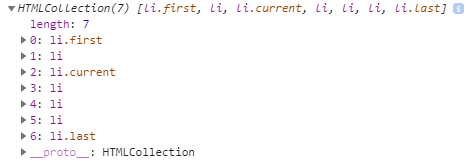Summary: in this tutorial, you will learn how to get the first child element, the last child element, and all children of a specified element.
Suppose that you have the following HTML fragment:
<!DOCTYPE html>
<html>
<head>
<meta charset="utf-8">
<title>JS Get Child Elements</title>
</head>
<body>
<ul id="menu">
<li class="first">Home</li>
<li>Products</li>
<li class="current">Customer Support</li>
<li>Careers</li>
<li>Investors</li>
<li>News</li>
<li class="last">About Us</li>
</ul>
</body>
</html>Code language: HTML, XML (xml)Get the first child element
To get the first child element of a specified element, you use the firstChild property of the element:
let firstChild = parentElement.firstChild; Code language: JavaScript (javascript)If the parentElement does not have any child element, the firstChild returns null.
The firstChild property returns a child node which can be any node type such as an element node, a text node, or a comment node.
The following script shows the first child of the #menu element:
let content = document.getElementById('menu');
let firstChild = content.firstChild.nodeName;
console.log(firstChild);Code language: JavaScript (javascript)Output:
#textCode language: CSS (css)The Console window shows #text because a text node is inserted to maintain the whitespace between the opening <ul> and <li> tags. This whitespace creates a #text node.
Note that any whitespace such as a single space, multiple spaces, returns, and tabs will create a #text node. To remove the #text node, you can remove the whitespaces as follows:
<article id="content"><h2>Heading</h2><p>First paragraph</p></article>Code language: HTML, XML (xml)Or to get the first child with the Element node only, you can use the firstElementChild property:
let firstElementChild = parentElement.firstElementChild;Code language: JavaScript (javascript)The following code returns the first list item which is the first child element of the menu:
let content = document.getElementById('menu');
console.log(content.firstElementChild);Code language: JavaScript (javascript)Output:
<li class="first">Home</li>Code language: HTML, XML (xml)In this example:
- First, select the
#menuelement by using thegetElementById()method. - Second, get the first child element by using the
firstElementChildproperty.
Get the last child element
To get the last child element of a node, you use the lastChild property:
let lastChild = parentElement.lastChild; Code language: JavaScript (javascript)In case the parentElement does not have any child element, the lastChild returns null.
The lastChild property returns the last element node, text node, or comment node. If you want to select only the last child element with the element node type, you use the lastElementChild property:
let lastChild = parentElement.lastElementChild;Code language: JavaScript (javascript)The following code returns the list item which is the last child element of the menu:
let menu = document.getElementById('menu');
console.log(main.lastElementChild);Code language: JavaScript (javascript)Output:
<li class="last">About Us</li>Code language: HTML, XML (xml)Get all child elements
To get a live NodeList of child elements of a specified element, you use the childNodes property:
let children = parentElement.childNodes;Code language: JavaScript (javascript)The childNodes property returns all child elements with any node type. To get the child element with only the element node type, you use the children property:
let children = parentElement.children;Code language: JavaScript (javascript)The following example selects all child elements of the element with the Id main:
let menu = document.getElementById('menu');
let children = menu.children;
console.log(children);Code language: JavaScript (javascript)Output:

Summary
- The
firstChildandlastChildreturn the first and last child of a node, which can be any node type including text node, comment node, and element node. - The
firstElementChildandlastElementChildreturn the first and last child Element node. - The
childNodesreturns a liveNodeListof all child nodes of any node type of a specified node. The children return all childElementnodes of a specified node.